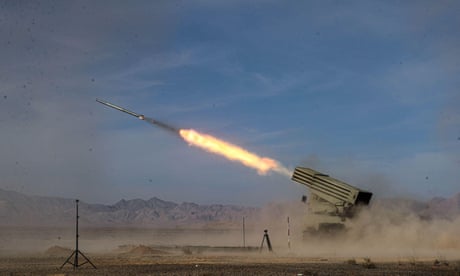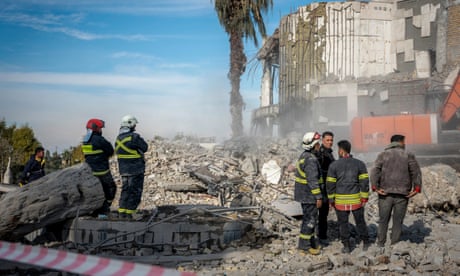Deliveries of medicine for Israeli hostages and Palestinian civilians were expected to start arriving in Gaza on Wednesday under a deal mediated by Qatar and France, after a night of deadly bombardments in the territory’s south.
Militants took about 250 hostages during the bloody 7 October attacks that sparked the war, and about 132 are still in Gaza, including at least 27 believed to have been killed.
The fate of those remaining in captivity has gripped Israeli society, while a broader humanitarian crisis in the besieged territory marked by the threat of famine and disease has fuelled international calls for a ceasefire.
In a statement to the official Qatar News Agency (QNA), Doha on Tuesday announced a deal “between Israel and [Hamas], where medicine along with other humanitarian aid is to be delivered to civilians in Gaza … in exchange for delivering medication needed for Israeli captives in Gaza”.

Qatari foreign ministry spokesperson Majid Al-Ansari told QNA the medicine and aid would leave Doha on Wednesday for the Egyptian city of El-Arish before being transported to the Gaza Strip.
The office of Israeli prime minister Benjamin Netanyahu confirmed the deal.
Forty-five hostages are expected to receive medication under the agreement, according to the French presidency. After the drugs arrive at a hospital in the southern Gaza border town of Rafah on Wednesday, it said, they will be received by the International Committee of the Red Cross, divided into batches and immediately transferred to the hostages.
The deliveries will go on for three months, and were coordinated by the French foreign ministry’s crisis centre, which bought the drugs and sent them to Doha on Saturday by diplomatic pouch, said the centre’s director, Philippe Lalliot.
Qatar, which hosts Hamas’s political office, has led negotiations between Israel and the Palestinian militant group, having mediated a week-long break in the war in Gaza in November that included the release of scores of Israeli and foreign hostages.
US national security council spokesperson John Kirby said on Tuesday he was “hopeful” that Qatar-brokered talks could lead to another such deal “soon”.
More than 1,200 people were killed in the 7 October attacks by Hamas in Israel, mostly civilians. Israel’s offensive has killed at least 24,285 people, mostly women and children, according to a recent toll from the Palestinian health ministry in Ramallah.
The ministry reported early on Wednesday that another 81 people were killed in overnight strikes, including in the main southern city of Khan Younis.

Negotiations on the fate of the hostages stalled after the release of 105 in exchange for 240 Palestinians held in Israel jails during a brief truce in November. Israel has said 25 are now believed to be dead.
The United Nations says the war has displaced roughly 85% of Gaza’s 2.4 million people, many of whom have been forced to crowd into shelters and struggle to get food, water, fuel and medical care.
Just before midnight on Tuesday, witnesses reported strikes on the Nasser hospital in Khan Younis, sparking panic among the hundreds of displaced people seeking shelter there.
Earlier in the day, residents of the city sifted through the rubble from strikes as trucks and carts stacked high with displaced families’ possessions rolled down the street.
“You can see the destruction. This room was inhabited by people, this one was inhabited by 20 children, women and men, and the same thing goes for the neighbouring houses in the whole camp,” resident Mohamad Ramadan told Agence France-Presse, gesturing at a destroyed home where he said several people had been killed. “These men can still find some of their body parts, nothing but remains torn apart,” he added.
In Tel Aviv, anti-war protesters scuffled with police on Tuesday night, as some held up signs reading “End the siege” and “Stop the genocide”.
“The occupation leads to bloodshed, and it continues incessantly. The children growing up now in Gaza are the ones who will confront us in a few years,” protester Chava Lerman told AFP.
“Civilians are getting killed by the Israeli bombings,” said fellow protester Michal Sapri. “It leads to nothing. Our hostages are still there. We’re not going to release them [through] more military power.”









































